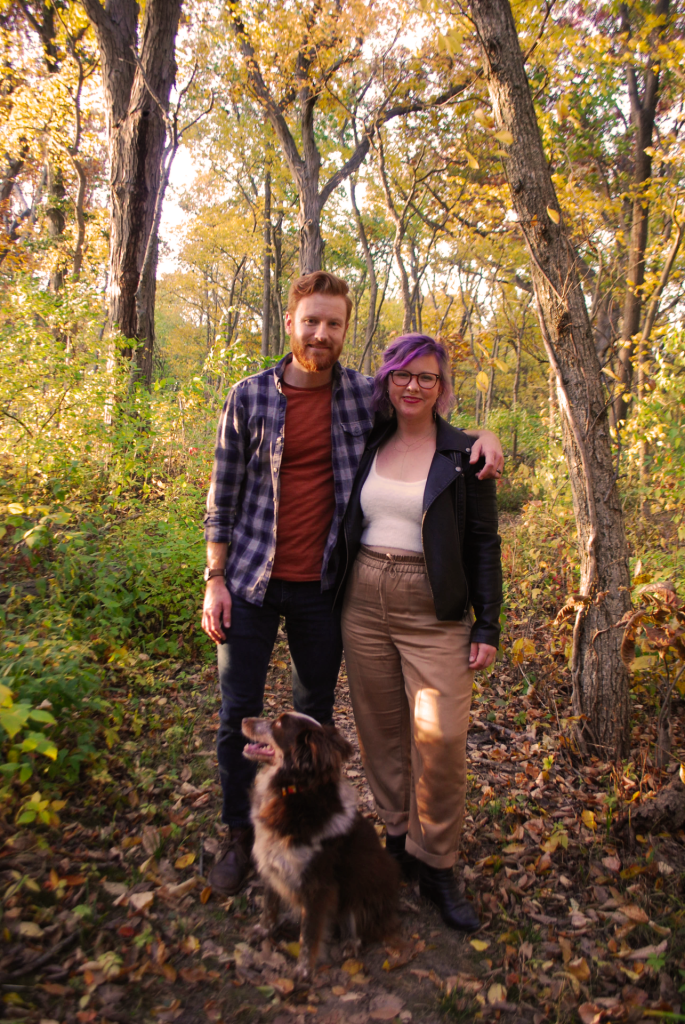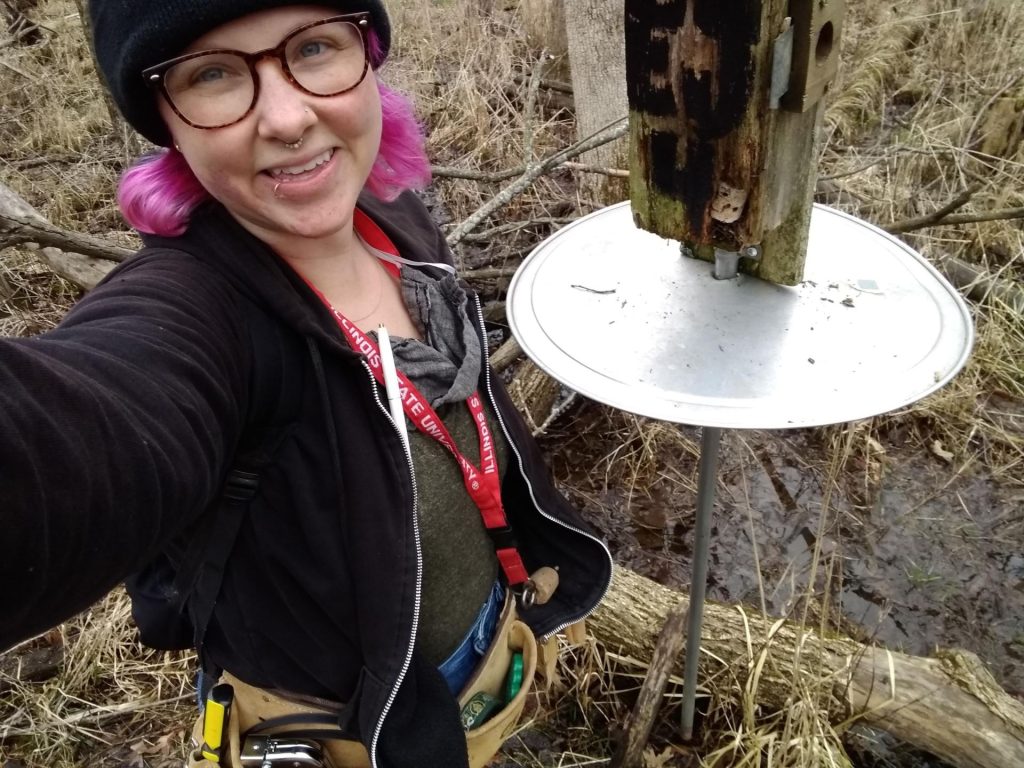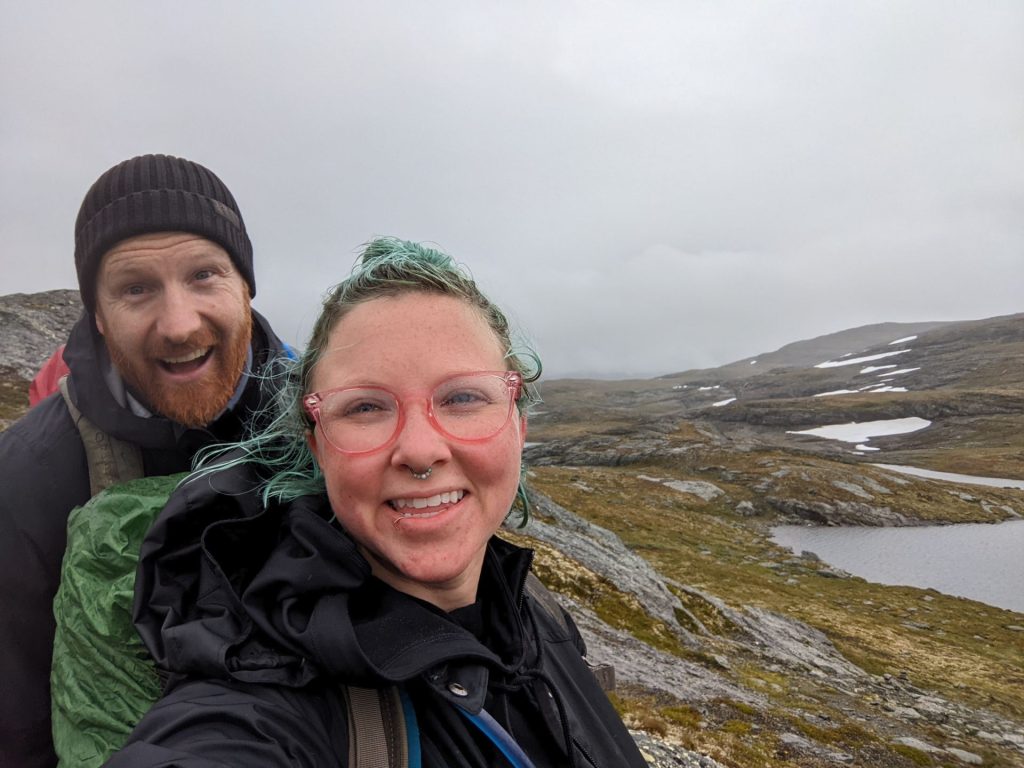The Graduate School has selected Rachael DiSciullo as its December GradBird Scholar recipient! GradBird Scholar is an initiative to recognize graduate students for their scholarly endeavors at Illinois State University.
DiSciullo is from West Chester, Pennsylvania. She received a B.S. in biology from Drexel University in Philadelphia, in 2013 and an M.S. in biology from the University of Nebraska-Lincoln in 2016.
“I love to be immersed in nature (and so am well suited to the fieldwork aspect of my studies) and try to hike often at our local preserves with my husband, Kyle, and our dog, Dolly,” Rachael said. “Cooking and baking bring me joy, and I regularly make an effort to explore new recipes to taste and share. My husband and I also love to travel.” Their most recent trip was to Norway, where they took a four-day backpacking trip through the Hardangervidda National Park in the country’s south. “It was a spectacular experience!”
What is your favorite part of the Biological Sciences program here at Illinois State?
One of the reasons I wanted to pursue being a scientist was to work with wild animals in their natural habitat. With my Ph.D. research, I am able to do this every summer at the ParkLands Foundation Merwin Nature Preserve, where we conduct our research. One of my advisors, Dr. Charlie Thompson, began this research in 1980 and has been back every summer to trap and track the population of northern house wrens that breed in this location. The absolute best part of my job is spending every morning, from 6 a.m. to 12 p.m., in the summer in the forest with the animals, asking and answering scientific questions.
Do you work with a specific faculty/staff member to help with your research?
My advisors, Dr. Charlie Thompson and Dr. Scott Sakaluk, are incredible to work with. Both are highly accomplished researchers with long, successful careers, and I feel so lucky to be trained by them both. They are supportive and guiding in all aspects of my experience as a graduate student here at ISU.
Can you explain your research and its importance of it within your field?
Sexual selection is a mechanism of evolution that promotes traits that favor mating success. Traits that are sexually selected are often elaborate or ornate and are attractive to a member of the opposite sex and/or help an individual repel a member of the same sex. Birdsong is a common example of a sexually selected trait and is the trait I study in northern house wrens here in central Illinois. Males in this species sing many different complex songs throughout the breeding season. We know that male song in this species is sexually selected, but it is unclear what about their varied, complex songs is particularly attractive to females (or helps them to fight off other males).
The focus of my dissertation is to explore the importance of different aspects of male song in this species to better understand how sexual selection has produced this ornate trait. I am approaching this research with a statistical method that has not yet been used in the study of birdsongs, and I am able to complement the mathematical portion of my research with fieldwork where I can test whether wild birds respond in ways I would expect based on the math. The approach I am taking is a rigorous method that we suggest other scientists use who are also interested in investigating sexually selected traits.
Why do you enjoy researching this topic, and what more do you hope to learn about it?
I have always been fascinated by sexually selected traits (think of the elaborate tail of the peacock)—these are the most beautiful and conspicuous traits that lead one to wonder, “How can that exist?” I am so happy to have found a lab that supports me in this research, in a well-established system like our house wrens. It is exciting to explore a trait like a song because it can sometimes feel as if you are learning a new language. Working to translate animal signals is challenging but rewarding as we work toward a deeper understanding of how birds interact and make choices that affect their evolutionary fitness.
What do you hope further research about this topic will do?
My dissertation research falls within the realm of what we call “basic science.” These are questions about the natural world that we ask to better understand how our Earth has produced the organisms and their traits that we see today. By better understanding the natural world, we can better empathize with our non-human neighbors, which hopefully leads to a greater interest in safely engaging with and ultimately protecting these lifeforms.
Would you like to highlight anything else about your project?
The house wren project hires paid undergraduate field techs every summer. We are always seeking motivated young scholars who are interested in conducting challenging but greatly rewarding fieldwork. If you are interested in joining our “Wren Crew,” we welcome you to apply by emailing Dr. Thompson at wrens@IllinoisState.edu with a CV that includes your GPA and a brief summary of any work or research experience (previous research is not required).





